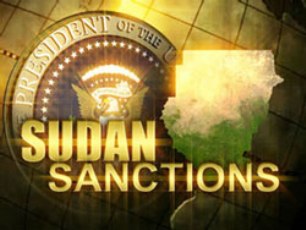Sudan Sanctions: U.S. encourages non-commercial remittances and humanitarian transactions
September 28, 2016 (KHARTOUM) – U. S. officials Wednesday said that U.S. sanctions on Sudan do not include private and remittance humanitarian aid to the eastern African country and encouraged transactions with Khartoum within the framework of many authorizations and licenses.

After a severe punishment of $9 billion on the BNP Paribas in May 2015, many institutions stopped banking transfers and transactions fearing sanctions.
In a bid to clarify the situation, the Department of State organized a workshop in New York on September 19, 2016 attended by foreign and domestic financial institutions and members of the private sector U.S.-Sudan Business Council.
Addressing the workshop, U.S Special Envoy For Sudan and South Sudan Donald Booth “voiced the U.S. Government’s hope that existing authorizations and licenses, many of which are humanitarian in nature, would be used to their fullest to benefit the people of Sudan.”
According to a statement released by the Department of State on Wednesday, Booth further said the Office of Foreign Assets Control (OFAC) of the US Department of the Treasury which is tasked with the administration and enforcement of economic and trade sanctions can help them to understand what is permitted or prohibited.
“Above all, Ambassador Booth encouraged banking institutions to ask OFAC, the agency that administers U.S. economic sanctions on Sudan, for guidance on specific transactions, stating, “When in doubt, ask!”, said the statement.
During the past years, several banks said the regime of sanctions is very obscure and unclear, as they do not necessarily have the qualified staff in their branches to deal with this situation in their day-to-day activity.
The Deputy Assistant Secretary of State for Economic and Business Affairs, Andrew Keller, attended the meeting. he led the U.S. delegation, consisting of representatives from the State Department, the OFAC, and the U.S. Commerce Department’s Bureau of Industry and Security.
Keller said the purpose of the workshop is to explain the extent of permissible business activities, which include commercial transactions.
During the one day seminar, the American officials explained “the jurisdictional limits of U.S. sanctions for transactions which do not involve U.S. goods or have a U.S. nexus”.
Also, Keller underlined that “non-commercial, personal remittances and humanitarian assistance” are authorized under the Sudan sanctions program.
“Effective sanctions are not just about the sanctions target feeling the pinch, they are also about making sanctions relief palpable,” Keller stressed.
Agriculture equipment and services are excluded from Sudan sanctions, Washington also allowed exports of personal communications hardware and software. Further, the US Treasury Department removed the private Bank of Khartoum from a blacklist of Sudanese entities.
The workshop was attended by the Governor of the Central Bank of Sudan Abdel Rahman Hassan Hashim who addressed the workshop.
Earlier this year Sudan’s Minister of Finance Badr al-Din Mahmoud, said his government is not affected by the sanctions as it deals with other currencies but not the dollar.
He further called to explain the American sanctions on Sudan to the commercial banks saying Sudanese people are the most affected by this programme..
(ST)
